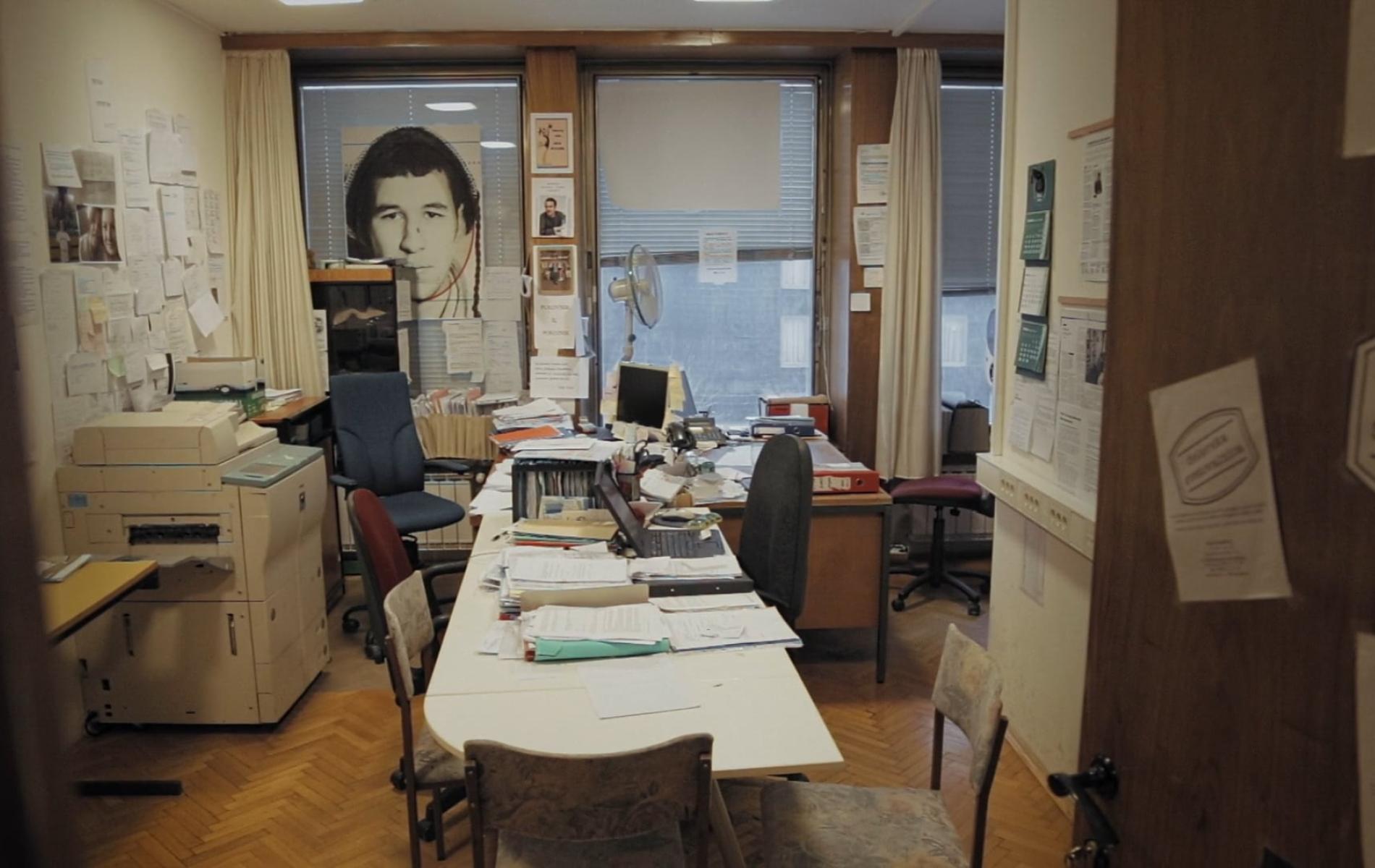Not far from the touristy center of Ljubljana in Slovenia is The Workers’ Advisory Office, a place where migrant workers from different backgrounds fight back against their exploitative bosses and companies. Srdan Kovacevic’s The Thing to Be Done, which held its world premiere at DOK Leipzig in the International Competition for Documentary Film, powerfully captures some of the harsh realities of being a foreign worker in post-2020 Europe.
Kovacevic is no stranger to the struggles of workers in Central Europe after his award-winning 2021 documentary Factory to the Workers. Here he returns to shed light on The Workers’ Advisory Office. In this cramped and messy office Goran Zrnic, a former electrician turned lawyer, Goran Lukic, a tireless union activist, and Laura Orel, a social worker, receive workers. Most are of Bosnian, Croatian, and Serbian origin, and they come with their documents, their doubts, sometimes their shame, and many, many questions about their labour conditions, payment or the lack of it, and their residency status.
In various interviews, Kovacevic’s film gives a small glimpse into the inner workings of injustice and abuse. While this trio and their team try to treat the workers who come to them as more than just migrants, it is impossible to see their condition independent from the fact of their fragile legal status as foreigners.
In the words of Orel, the energetic social worker who follows the cases of female cleaners and migrants, the aim of The Workers’ Advisory Office is to give “information, advice, and representation.” This statement is important in positioning Kovacevic’s protagonists and asserting that the trio are not your usual spearhead champions of labour struggles.
Rather, their job is to enable the workers by equipping them with knowledge of the law to push back and confront their employers. The occasional encouraging pep talks, mostly by Zrnic, include very basic realities; for example, no overtime hours without payment, and no cash payment without paying into the pension fund. Zrnic encourages a worker to hustle and confront their employer without fearing deportation. In another scene, Orel cheers a female cleaning worker as she stands up to her boss on the phone, asserting that she will no longer be scammed.
These scenes tell a lot about how migrant workers give up some of their basic rights; not consciously, but because of their constant insecurity about remaining jobless or, even worse, being deported. A sign reads: “Go back to the Sava River,” referring to Serbia or Croatia.
While taking phone consultations, The Workers’ Advisory Office is often mistaken for a union, something the trio make clear they are not. In a parallel narrative, the office supports a group of “outsourced workers” in filing a lawsuit against a shipping port, after they were fired following years of working under horrific conditions. Lukic, the office’s person on the ground, who does advocacy in the media and helps the workers organize, stands hand in hand with them as they finally reach a preliminary victory which allows them to sue the port and demand compensation.
This victory is not portrayed like it would be in dozens of other labour documentaries. It is rather the recognition that is celebrated. “The enlightened rebel will shake the throne of power” is a catch-phrase that hovers between optimism and exhaustion.
In one scene Zrnic, arguably the oldest of the trio, tells a Bosnian that “Tito is dead,” referring to Yugoslavia’s former communist revolutionary leader. The film asserts that ministries, unions, and the law—structures that have over the years been overrun by corporations and big money—serve the companies, not the workers. In that sense, Kovacevic’s film voices the need for a new dynamic of solidarity. There are no red flags, pictures of Lenin or quotes from Marx, but there is a crucial spotlight on the “enlightened rebels” who positively use legal loopholes give people a fighting chance.
The filmmaking in The Thing to Be Done is tailored from fragments of desperation, bureaucracy, corruption, and hope. The documentary’s patient tempo absorbs the timidness of bureaucratic struggles, the back-and-forth calls, paperwork, moments lost in translation, and exhaustion. Kovacevic’s presence as a filmmaker and cameraman is rarely felt, which might at first sound like a negative critique, but the opposite is true. He allows the protagonists their own time and space, acknowledging the exhausting toll labour cases take, from the preliminary consultation to even a minor victory.
There is a famous quote by the Italian Marxist philosopher Antonio Gramsci, echoing French writer Romain Rolland: “I’m a pessimist because of intelligence, but an optimist because of will.” What remains with the viewer after watching is the “optimism of the will” in The Thing to Be Done. It is when the protagonists Zrnic, Lukic, and Orel show the system’s failure, capitalism’s dog-eat-dog brutality, and the neocolonialist dynamics manifested in racism and abuse, but at the same time depict a parallel world in which informed laborers and migrants fight back and rise up to demand their rights.
Director, screenplay, cinematography: Srdan Kovacevic
Producer: Sabina Kresic
Executive Producer: Srdan Kovacevic
Script Editor: Olga Dimitrijevic
Editors: Klara Sovagovic, Damir Cucic
Additional Editor: Srdan Kovacevic
Co-Producers: Viva Videnovic, Marta Popivoda, Jelena Angelovska
Color Grade: Goran Todoric, Forgrade Studio
Sound Design: 001, Klemen Berus, Matic Berus, Samo Jurca, Julij Zornik
Graphic Design: Skart, Nikola Djurek/Typonine Sans
Venue: Dok Leipzig Festival (International Competition Documentary Film)
In Slovenian, Bosnian, Croatian, Serbian
88 minutes

